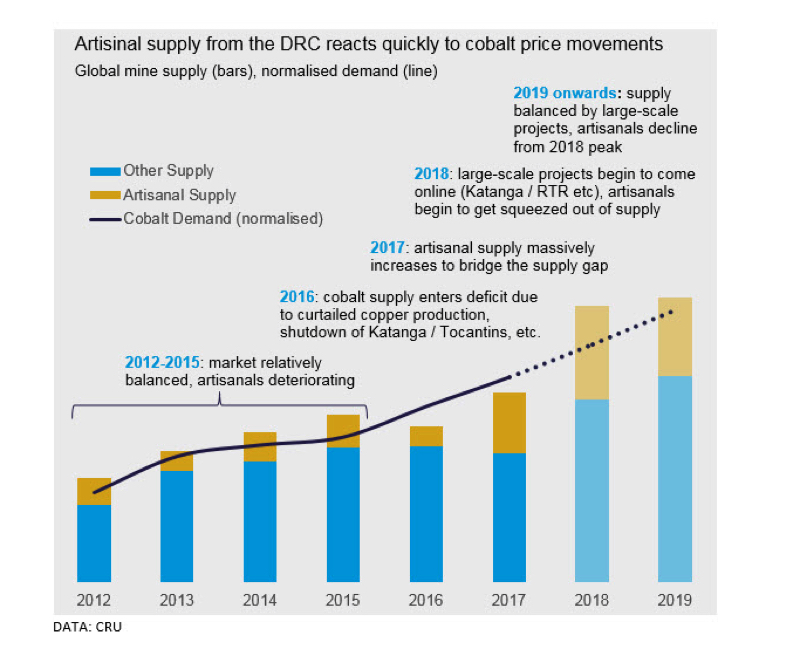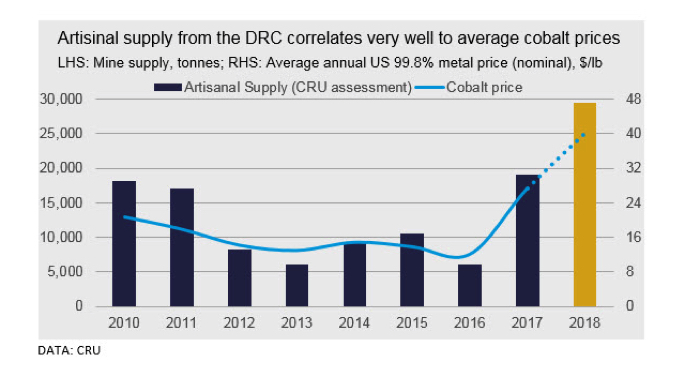Congo miners buying cobalt from artisanal operators to balance market
Despite calls for increased transparency along the cobalt supply chain to avoid alleged human rights violations in the Democratic Republic of Congo, the activity continues to escalate, with as many as 100,000 diggers, sorters and washers believed to be involved in the trade.
Cobalt, a by-product of copper or nickel, is used to make lithium-ion batteries found that power smartphones and electric cars. Currently about two-thirds of it comes out the DRC. However, due to the region's intense poverty and the mineral's soaring price, thousands of impoverished Congolese have flocked to the cobalt rich areas to secure an income.
When done correctly, artisanal mining can be an ethical source of low-cost, high-grade cobalt and a key mechanism in keeping the market balanced during times of supply shortage.Traditionally, artisanal miners have sold their ore to local co-operatives, which then sell it to local merchants and traders. They, in turn, sell to international traders or operating mines with established transport links and the artisanal mined cobalt ends up being exported to China as concentrate.
Business intelligence company CRU, however, suggests that a growing number of cobalt mined by artisanal workers in the DRC is being bought and processed in the country, with many Chinese- and Indian-run mining operations subsidising their own mined supply with artisanal units.
"Artisanal mining is typically far more challenging to track as a source of supply than traditional mining sources," says CRU senior analyst George Heppel.
From a strictly commercial point of view, Heppel believes it can play a key role in keeping the cobalt market balanced during times of supply shortage.


Courtesy of CRU Group.
"When done correctly, artisanal mining can be an ethical source of low-cost, high-grade cobalt which also puts income directly into the hands of locals with very few alternative options available to them," Heppel says.
Western mining companies have tried distancing themselves from artisanal cobalt supply to forego the risk of inadvertently using raw materials sourced from child labour, which remains rampant in central Africa.


Courtesy of CRU Group.
In 2014, UNICEF estimated that around 40,000 children were involved in artisanal mining in the DRC. And Amnesty International has said that children as young as seven can be found scavenging for rocks containing cobalt in DRC, which holds about 49% of the world's known reserves of that metal.
Those and other allegations have put pressure on companies such as Tesla and Apple to trace the cobalt they use, with the computer and electronics maker leading the way in terms of transparency.